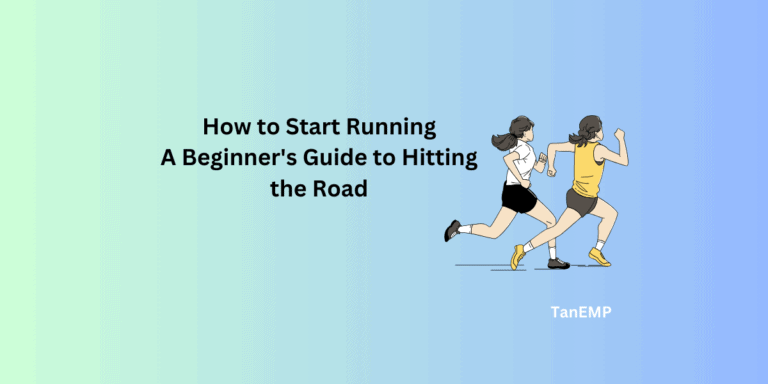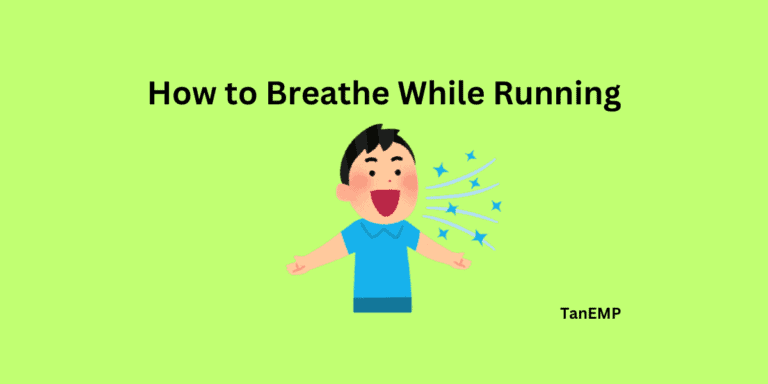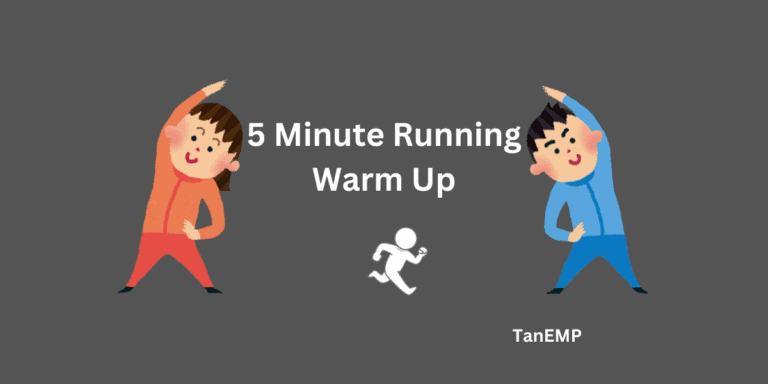Running in the Morning vs Night: Which Time Boosts Your Performance?
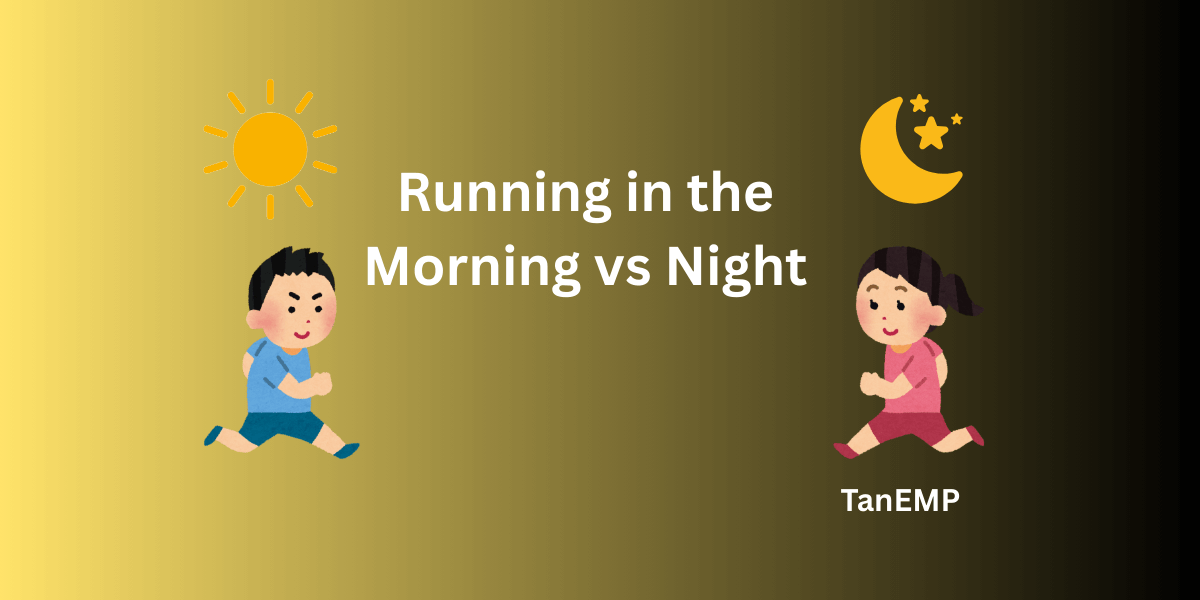
Not sure if you should run in the morning or at night?
Choosing when to run isn’t just about what feels good. It’s about when your body works the best.
When I was a new runner, I tried waking up early and reminding myself of all the benefits of morning runs. However, I found that I perform better at night.
Studies show that the time of day you run can affect your energy, metabolism, and fitness results.
Whether you’re an early bird or more of a night owl, this guide will help you find the best time to run in 2025.
Key Takeaways
- Your circadian rhythm affects your running performance—morning and evening runs offer different benefits.
- Morning runs can boost metabolism, improve focus, and help establish a consistent routine, but they may feel harder at first due to lower body temperature.
- Evening runs allow for better performance and reduced injury risk since muscles are already warmed up, but they may interfere with sleep if done too late.
- Consistency is key—the best time to run is the one that fits your lifestyle and helps you stay motivated.
- Sleep and recovery matter—ensure you’re getting enough rest to maximize the benefits of your training.
This summary keeps it concise while giving readers a quick insight into the article’s main points!
Understanding Your Circadian Rhythm
Your body’s internal clock, or circadian rhythm, affects more than just sleep. It also plays a role in how well you can work out.
Your body changes throughout the day—your temperature, hormones, and energy levels. This explains why morning exercise can feel tough at first. Your body temperature is lower, and your muscles are still waking up.
That’s why warming up is important. It gets your blood flowing and helps prevent injuries during your run.
On the other hand, if you’re more of a night person, you might find evening workouts easier.
By then, your body will be active all day, so your muscles will be warmer, and you may perform better. But be careful—working out too late can affect your sleep.
Now that you understand how your body’s internal clock affects exercise, let’s explore the pros and cons of running at different times of the day
Morning Running: Benefits and Drawbacks

Morning runs have a lot of benefits, but they’re not for everyone.
If you can wake up early for an early morning running session, you’ll jumpstart your metabolism and get a mood boost that lasts all day.
Plus, finishing your workout first thing means you won’t have to worry about fitting it in later. If you’re training for a race, running in the morning can also help you prepare for race day conditions, since most races start early.
But morning exercise isn’t always easy.
- It might take longer for your body to get the warm-up
- Your body may take time to adjust to early runs, making them feel harder at first.
- In the beginning, your body may feel exhausted because your body is not used to morning exercise.
Still, a lot of runners love morning workouts because they help with focus and energy levels.
Evening Running: Benefits and Drawbacks
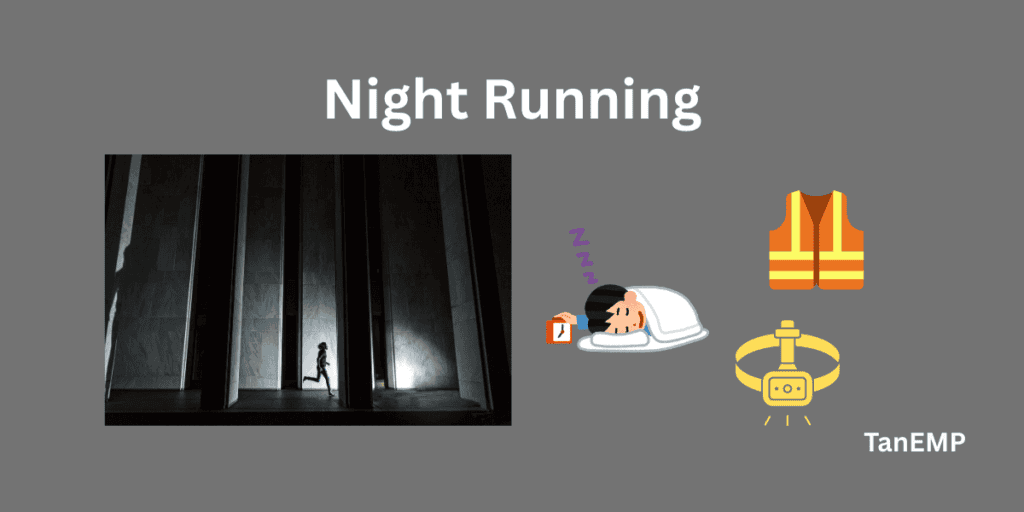
Evening runs are a great way to let go of stress after along working day. If your schedule has been packed or you just need a mental reset, running at night can help you unwind.
One big advantage? Your body temperature is higher in the evening, so your muscles and joints are already warmed up. This can lead to better performance and a lower risk of injury compared to morning runs.
But evening workouts aren’t perfect for everyone. Here’s why:
- Running too late can make it harder to fall asleep, especially if it’s an intense workout.
- A high heart rate before bed may affect sleep quality.
- It might mess up your sleep pattern if you’re running too late or run too much
- It’s easy to lose motivation after a long day of work or school.
With the right timing, night running can keep you fit while also helping you wind down for the night!
Tips for Morning Workouts

If you want to make morning running a habit, a few key strategies can help.
- Get Enough Sleep – Aim for 7-8 hours of rest each night. A well-rested body performs better, recovers faster, and reduces the risk of injury.
- Create a Morning Routine – Having a set routine makes it easier to stay consistent. Try these running tips:
- Lay out your running gear, and running shoes the night before.
- Set your alarm away from your bed to avoid hitting snooze.
- Drink a glass of water first thing in the morning.
- Boost Your Circulation & Flexibility – Running early helps improve blood flow, warms up your muscles, and increases flexibility. This can move to feel smoother and reduce stiffness.
- Start Your Day with Accomplishment – A morning run gives you a mental and physical boost before the day even begins. It can help you feel more energized, motivated, and ready to tackle your to-do list.
If waking up early feels tough, start small. Go to bed 15 minutes earlier each night and gradually adjust. With time and consistency, morning runs will feel less like a challenge and more like a refreshing way to start your day.
Tips for Evening Workouts
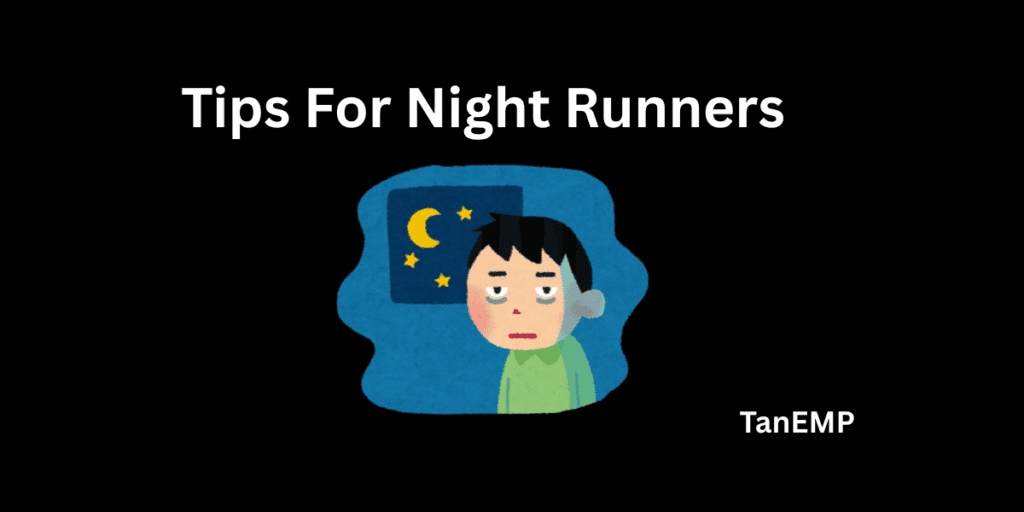
Evening runs can be a great way to unwind and de-stress after a long day. They help clear your mind, make it easier to relax, and even improve sleep quality.
If you struggle with stress or anxiety, an evening jog can help release built-up tension before bed.
To make the most of your evening workouts, keep these tips in mind:
- Limit Screen Time Before Bed – Avoid phones, tablets, and TVs for at least an hour after your run. This helps your body wind down and promotes better sleep.
- Use Evening Runs to Relax – Running in the evening can bring a sense of calm, helping you transition from a busy day to a restful night. Remember to breath properly.
- Stay Safe While Running at Night – Since visibility is lower at night, take these precautions:
- Wear Reflective Gear – Bright or reflective clothing helps others see you.
- Stick to Well-Lit Areas – Running where there is plenty of light reduces the risk of tripping or accidents.
- Stay Aware of Your Surroundings – Keep your senses sharp and avoid distractions like loud music.
Evening runs can be both physically and mentally refreshing. Stay consistent, stay safe, and enjoy the benefits of nighttime running!
Establishing a Consistent Routine
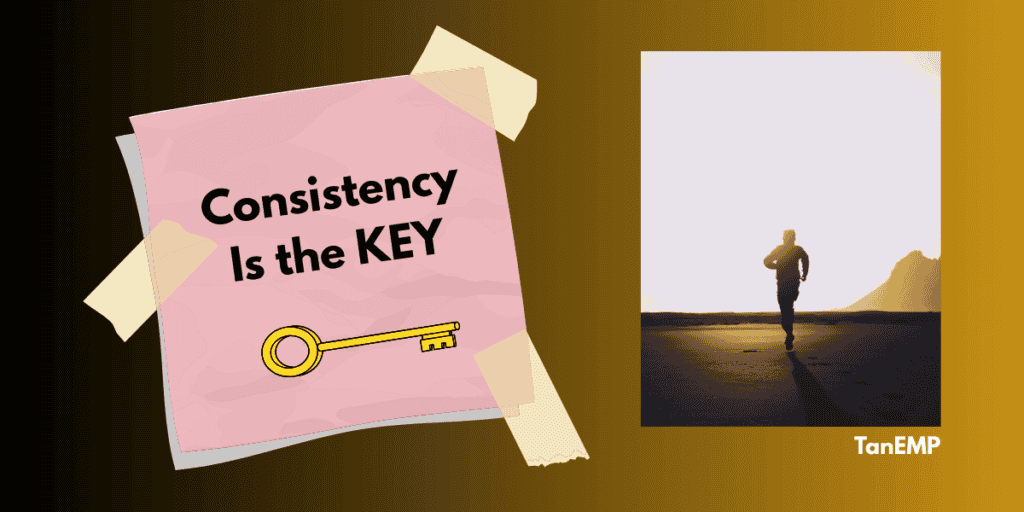
No matter when you run, the most important thing is consistency.
I wanted to be a morning runner, but I gave up after a week of trying. Three years later, I tried again. But after six weeks of hitting snooze—until my wife nearly smashed my phone.
I had to admit defeat. Waking up early just wasn’t for me.
But running after work? That worked. I found my rhythm and stuck with it for months.
The key is to find a time that fits your life. A steady running schedule helps your body recover, keeps you on track with your goals, and makes exercise feel like a natural part of a healthy lifestyle.
No matter when you run, safety comes first. Stay aware of your surroundings, especially in low light. If you’re running in the dark, wear reflective gear so drivers can see you. Most importantly, choose routes where you feel comfortable.
The best routine is the one you can stick with. Find what works for you and keep moving!
Improved Performance: Morning vs Evening Workouts

Which one helps you perform better?
Morning and evening runs both have their pros and cons. It’s not always easy to choose between them.
I tried running at 5 AM in the snow for a week… and gave up. It was rough! But when I switched to evening runs, I noticed something—I slept like a baby after my 3-mile run.
Then I learned that timing makes a difference. Research shows that evening runs can help you run longer and feel stronger. Running after work became my way to relax, and those sunset runs turned into my secret weapon.
But morning runs have their benefits too. They wake you up, boost your metabolism, and can even help with weight loss. If you stick to an early routine, you’ll have more energy throughout the day.
Just don’t forget a proper warm-up—especially on chilly mornings!
Balancing Running with Sleep and Recovery
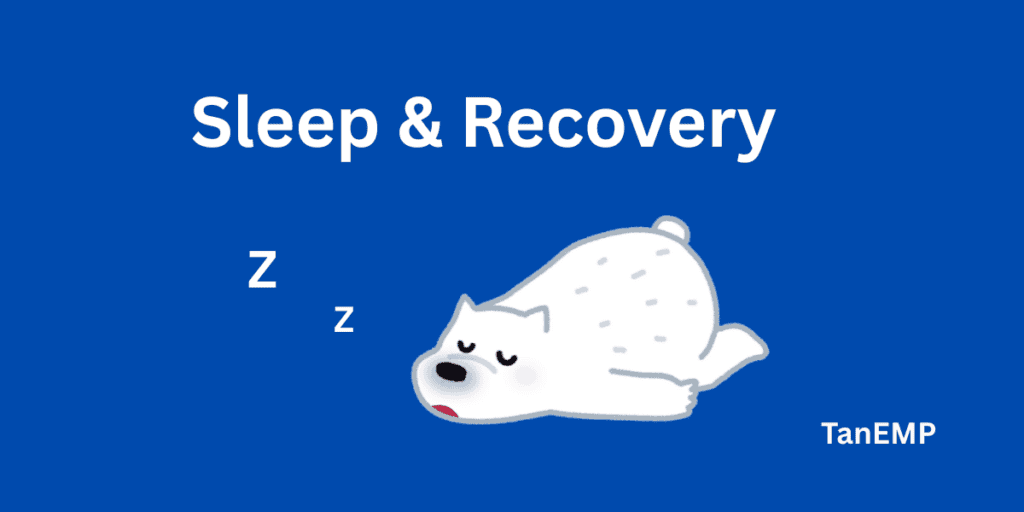
Getting 7-9 hours of sleep each night is essential for recovery, especially for runners. Sleep helps muscles repair, reduces injury risk, and improves performance.
If you have a busy schedule—like working a 9-to-5 job, commuting, or taking care of family responsibilities—finding time to run can be tricky. Morning runners may need to wake up extra early, while evening runners should avoid running too late to prevent sleep disruptions.
To balance running and recovery:
- Plan Your Workouts Wisely – Schedule runs at a time that allows for enough rest.
- Prioritize Sleep – Treat sleep like part of your training. Without it, your body won’t recover properly.
- Listen to Your Body – If you feel constantly tired or sore, adjust your routine.
By keeping a consistent sleep schedule and listening to your body’s needs, you’ll improve recovery and keep your running routine strong.
Conclusion
When Is the Best Time to Run? It’s Up to You!
Scientists have some helpful hints about the benefits of running in the early hours, but the most important thing is finding what works for YOU. training schedule
Think of running like trying on shoes. Not every pair fits the same way, and the same goes for workout times. Some people feel awesome running early in the morning, while others love an evening run after work.
No matter when you run, the most important thing is to stay consistent and enjoy the journey.
FAQ
Does running in the morning increase energy levels throughout the day?
Yes, running in the morning can give you a natural energy boost that lasts throughout the day. It helps improve circulation and releases endorphins, which can elevate your mood and reduce stress.
Can I run in the evening and still see fitness improvements?
Absolutely! Running in the evening can be just as effective. Many runners find they have more strength and endurance at night after their body has had time to fully wake up and fuel itself with food throughout the day.
How does running in the morning impact metabolism?
Running in the morning is shown to kickstart your metabolism, helping you burn more calories throughout the day. It’s also believed to improve fat-burning, especially if done before eating.
Can running in the evening impact my sleep?
Running late in the evening can affect your sleep for some people, especially if you’re doing intense exercise too close to bedtime. However, moderate or light runs may not interfere with sleep and can help some people relax.
Can I train for a race in the morning and night?
Yes! Both morning and evening runs can be part of your training plan. It’s important to listen to your body and alternate between times to avoid fatigue or overtraining.

